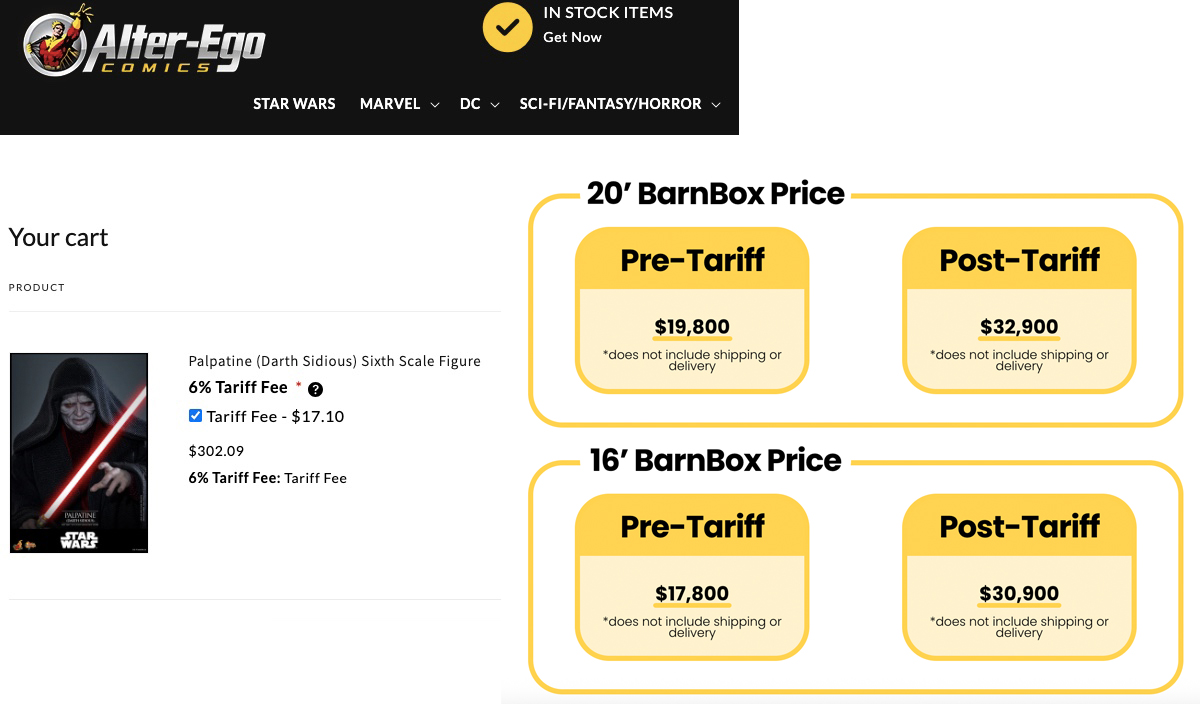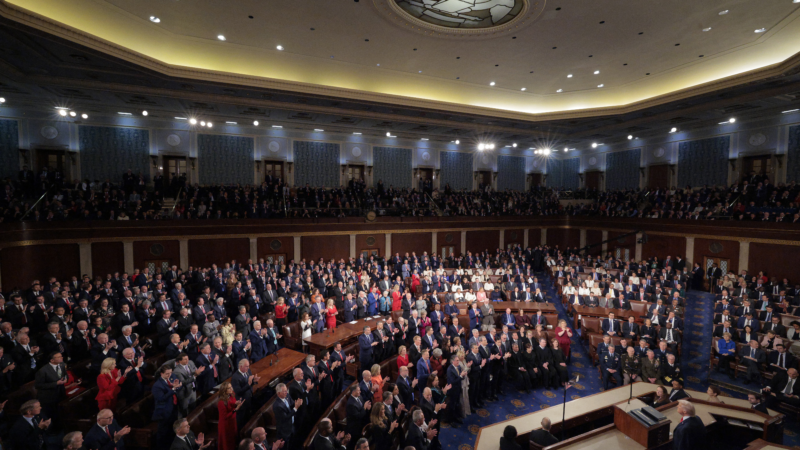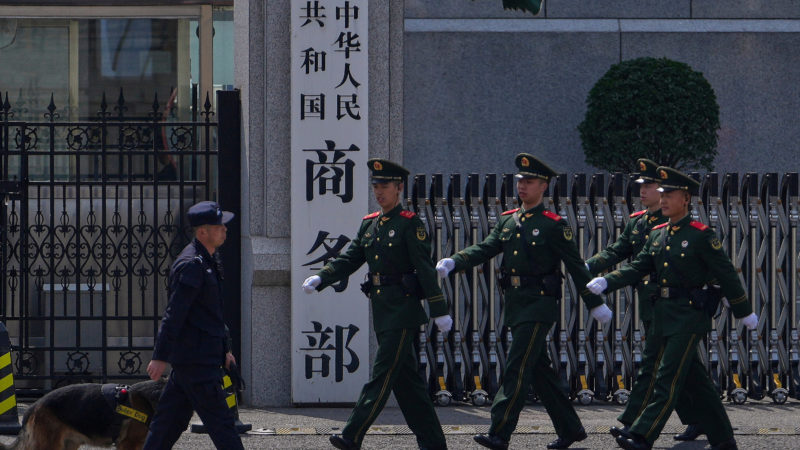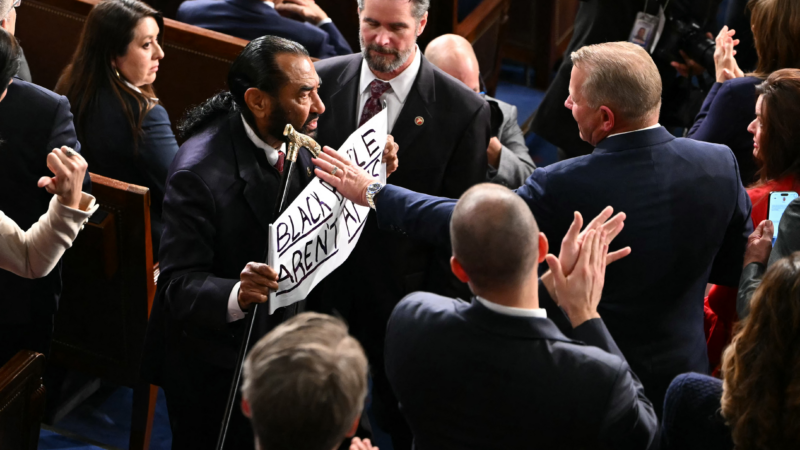Americans are already seeing Trump’s tariffs kick in. They sent in receipts to prove it
Lots of new tariffs have already gone into effect and more are about to come online.
There is the tax on auto parts that kicked in this month; duties on steel and aluminum; new levies on small value packages; 10% on most imports; a flat 145% customs fee on anything from China; and potentially even more coming, given other tariffs on dozens of countries were paused until at least July.
Some of that increased cost is being eaten by exporters in other countries, but a lot is being picked up by Americans.
NPR asked listeners and readers to send us copies of receipts that break out the higher costs from tariffs. We heard back from dozens of people. Here’s what we got:
She paid more than double the original price for her wheelchair
Sandy Alonso really needed to replace her wheelchair.
“It’s 10 years old,” Alonso said. “Pieces are starting to break.”
Alonso liked the model she already had: a chair that is light enough for her to load into her car herself. It is made in China, and she is not aware of any other North American distributor who has it. So, she found a freight forwarder in Canada who could ship the wheelchair to her to Tampa, Florida, where she lives.
When Alonso placed the order in early March, she found she would have to pay 20% tariffs on the chair, which was “certainly workable” though “not great,” she says. But President Trump imposed more tariffs within weeks, and by the time the wheelchair arrived in Canada via China and crossed the border into the U.S., Alonso was facing a steeper tariff of 145%.
By then, it was too late to send it back. The total cost of her wheelchair was close to $6,000, of which nearly $3,500 was for tariffs alone.
“I’m just sitting here going, wow, I can’t believe I’ve just paid this much for this chair,” she laughed in disbelief.

Some small businesses are showing customers what extra tariffs cost
Small businesses also sent in screenshots of their new prices to NPR. Some of them have chosen to be upfront with their customers about why they have hiked prices after global tariffs hit and are disclosing how much of the cost they are passing on.
“We’re a small company that has gotten to where we are by people investing in us, trusting in us,” says Kimberly Drennan, the CEO of HiveTech Solutions, a Colorado company that makes large, refrigerated container boxes for beekeepers and for farmers to keep their harvests fresh. As a start-up, the company works on slim margins already, she says.
Drennan shared a screenshot showing how the starting price of one of her company’s boxes has shot up from $17,800 to more than $30,000 for shipments from China now. She’s also shared this on her website and at a business conference.
Sharing these prices with her customers was a choice. The Trump administration criticized Amazon when it was reported that one of the units at the e-commerce giant was considering listing the cost of tariffs. Amazon has since said it will not list those costs.
But Drennan says she wanted to be transparent with customers about the start-up’s profit margins and their hike in costs: “They really thought that, oh, China’s going to pay this. It doesn’t matter to us because, you know, China is going to pay this tariff. We were like, no, that’s not how tariffs work. It’s really a tax on us.”
Some regular store shoppers feel the same way. Jeri Cheraskin noticed her local grocery store in Ithaca, NY posted a notice for customers that bananas from Costa Rica are costing 10% more because of tariffs.
“I always think that being honest with your clientele, your consumers is really the best way to go instead of being kind of sneaky about it,” Cheraskin says. “Personally, I would like to know.”
Will his suppliers remain in business by the end of the year, he wonders
President Trump has argued tariffs will protect American businesses, offset foreign-made goods that are uncompetitively cheap, and incentivize manufacturers to set up shop inside the U.S.
But some business owners say the constant tariff changes have hurt their bottom line. They include Marc Bowker, who says tariffs impacts how much money he can make.
“My profit went from 30% to 16% in a matter of days,” says Marc Bowker, the owner of Alter Ego Comics, a family-run business in Ohio.
That is because his Chinese manufacturer who makes his collector figurines is absorbing most but not all of the cost of the 145% U.S. tariffs.
Bowker still faces higher costs and has chosen to absorb about two thirds of that, but he is asking his longtime customers to pay 6% more, even after taking a cut in profits.
His business also publishes comic books, which are printed in Canada, which could be facing more tariffs from the U.S.
Bowker says to find U.S. alternatives for printing and manufacturing, he would need months, maybe years for suppliers to explore relocating to the U.S. Like most small businesses, he cannot afford to wait that long.
“It’s almost time for us to start ordering for the holiday season, and I have no idea how to do that this year. I don’t want to pay significantly more. I don’t want to have too much product on my shelves,” he says.
With the impact of the tariffs hitting everyone’s bottom line, he wonders if his suppliers in China or Canada might still be in business by the end of this year.
Hundreds of American nurses choose Canada over the U.S. under Trump
More than 1,000 American nurses have successfully applied for licensure in British Columbia since April, a massive increase over prior years.
Trump’s many tariff tools mean consumer prices won’t go down, analysts say
The Supreme Court struck down President Trump's signature tariffs. But the president has other tariff tools, and consumers shouldn't expect cheaper prices anytime soon, economists say.
5 takeaways from Trump’s State of the Union address
President Trump hit familiar notes on immigration and culture in his speech Tuesday night, but he largely underplayed the economic problems that voters say they are most concerned about.
China restricts exports to 40 Japanese entities with ties to military
China on Tuesday restricted exports to 40 Japanese entities it says are contributing to Japan's "remilitarization," in the latest escalation of tensions with Tokyo.
Signs, silence, and skipping: How Democrats protested Trump’s State of the Union
The pushback comes as Democrats enter a midterm year where they hope to make gains in the House and Senate.
Trump honors gold medal-winning men’s hockey team at State of the Union amid controversy
The celebration of the men's team comes after FBI Director Kash Patel's trip to the Games in Milan, and the president's comments about the U.S. women's team, have drawn scrutiny.







